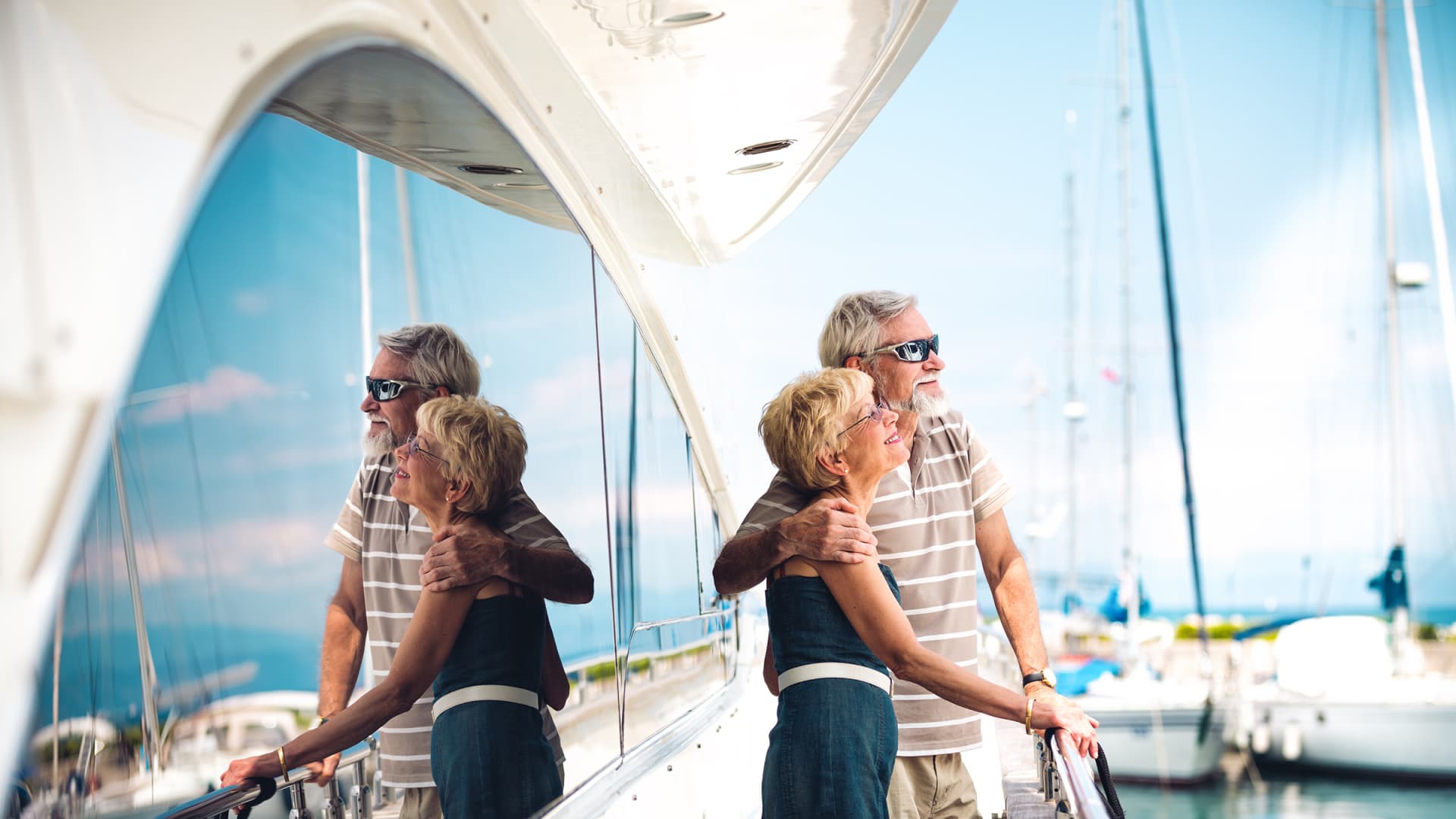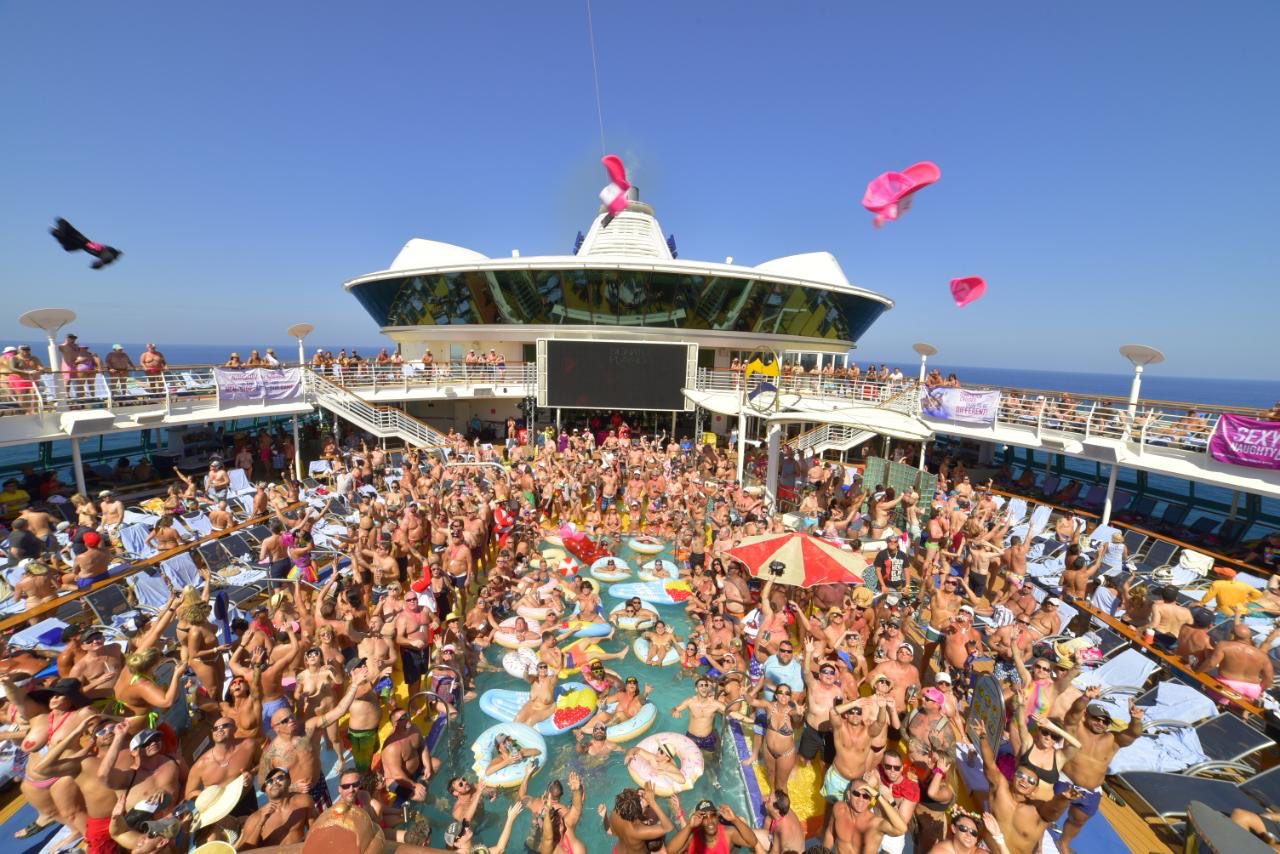Seniors holiday packages offer a wealth of options for older travelers seeking relaxation, adventure, or cultural immersion. Tailored to the specific needs and preferences of this demographic, these packages address concerns about accessibility, health, and ease of travel, ensuring a comfortable and enjoyable experience. From luxurious cruises to escorted tours and all-inclusive resorts, the variety caters to diverse budgets and interests, promising memorable vacations for active seniors and those preferring a more relaxed pace.
This exploration delves into the diverse world of senior travel, examining the market’s demographics, popular destinations, and the essential features that define a truly senior-friendly holiday package. We’ll also cover effective marketing strategies to reach this valuable demographic and address frequently asked questions to help you plan the perfect getaway for your senior loved ones or yourself.
Understanding the Senior Travel Market
The senior travel market is a significant and rapidly growing sector of the tourism industry, representing a substantial economic force and a diverse demographic with unique needs and preferences. Understanding this market is crucial for businesses aiming to cater to this increasingly influential group of travelers.
Demographics of the Senior Travel Market
The senior travel market encompasses individuals aged 60 and above. While the exact age breakdown varies by region and definition, a significant portion falls within the 60-75 age bracket, with a substantial and growing segment aged 75 and older. This demographic is characterized by increasing disposable income, longer lifespans, and a desire for enriching experiences. The market is further segmented by factors such as marital status, health conditions, and level of independence, all of which influence travel choices.
For example, couples often opt for cruises or guided tours, while solo travelers may prefer independent exploration or small group adventures.
Motivations and Desires of Senior Travelers, Seniors holiday packages
Senior travelers are primarily motivated by a desire for relaxation, exploration, and connection. Many seek opportunities to unwind and de-stress, often choosing destinations known for their tranquility and natural beauty. Others are driven by a thirst for knowledge and cultural immersion, opting for tours that delve into history, art, and local customs. Connecting with family and friends is also a major motivator, with multi-generational trips becoming increasingly popular.
Finally, many seniors view travel as a means of personal enrichment, seeking experiences that challenge them and expand their horizons. This could involve learning a new language, trying new cuisines, or engaging in adventurous activities.
Travel Preferences Across Different Senior Age Groups
Travel preferences often shift with age. The 60-70 age group generally displays a higher level of energy and mobility, often opting for active vacations involving hiking, cycling, or cultural exploration. The 70-80 age group may prefer more relaxed itineraries with less strenuous activities, perhaps focusing on comfortable accommodations and shorter travel distances. The 80+ age group typically requires more assistance and support, with a focus on accessible accommodations and itineraries that prioritize comfort and safety.
Learn about more about the process of over 55 travel in the field.
These preferences are not absolute, however, and individual circumstances and preferences always play a significant role.
Concerns and Needs of Senior Travelers
Accessibility and health considerations are paramount for many senior travelers. Easy access to transportation, accommodations, and attractions is crucial. This includes features such as ramps, elevators, and accessible restrooms. Health concerns are also a major factor, with many seniors needing to consider proximity to medical facilities and the availability of appropriate medical services. Travel insurance covering medical emergencies is therefore a significant consideration.
Furthermore, the level of physical exertion involved in a trip, the availability of comfortable seating and rest stops, and the overall pace of the itinerary are all important factors that must be considered when planning trips for seniors. For example, a tour that involves significant walking may be unsuitable for someone with mobility issues, while a cruise may be a more appropriate option.
Destination Preferences for Seniors: Seniors Holiday Packages

Senior travel is a booming market, with retirees seeking enriching experiences and relaxation in their golden years. Understanding their destination preferences is crucial for travel providers to cater effectively to this demographic. Factors such as accessibility, climate, and cultural attractions heavily influence where seniors choose to spend their holidays.
Popular Senior Travel Destinations and Their Appeal
Several destinations consistently rank highly among senior travelers. Warm, sunny climates are frequently sought after, offering opportunities for outdoor activities and relaxation. Destinations with well-developed infrastructure and accessible transportation options also prove particularly attractive. Furthermore, locations rich in history, culture, and scenic beauty provide stimulating and memorable experiences. For example, the Mediterranean coast of Spain and Italy consistently draw large numbers of senior tourists due to their pleasant weather, historical sites, and accessible infrastructure.
Similarly, cruises catering to seniors offer a combination of relaxation, diverse destinations, and onboard amenities tailored to their needs.
Factors Influencing Senior Travelers’ Destination Choices
Climate plays a significant role, with many seniors preferring warmer destinations to escape harsh winters. Accessibility is paramount; destinations with easy navigation, readily available assistance, and accessible accommodations are highly valued. Cultural attractions, such as historical sites, museums, and art galleries, draw those seeking enriching experiences. The availability of healthcare facilities and English-speaking staff also provides peace of mind for many senior travelers.
Finally, the overall safety and security of a destination are key considerations. For example, a senior with limited mobility would prioritize destinations with accessible transportation and flat terrain, while a history buff might choose a city with numerous historical sites and museums.
Destinations Suitable for Seniors with Varying Mobility and Interests
Senior travelers have diverse needs and preferences. Here’s a selection of destinations catering to different levels of mobility and interests:
- High Mobility & Cultural Interest: Florence, Italy; Kyoto, Japan; Paris, France. These cities offer a wealth of cultural attractions but require a reasonable level of mobility for walking and navigating public transport.
- Moderate Mobility & Relaxation Focus: The Algarve, Portugal; San Diego, California; Cancun, Mexico. These locations offer a mix of relaxation and some cultural activities with generally flatter terrain and accessible transportation options.
- Low Mobility & Comfort Prioritized: All-inclusive resorts in Barbados or the Dominican Republic; River cruises on the Rhine or Danube; Accessible cruises to the Caribbean. These options prioritize comfort and minimize the need for extensive physical activity, offering a range of accessible amenities and transportation.
Benefits and Drawbacks of Different Destinations for Senior Travelers
Each destination presents its own unique advantages and disadvantages. For example, while destinations like Hawaii offer beautiful scenery and warm weather, they can be expensive. European cities rich in history and culture may present accessibility challenges for those with limited mobility. All-inclusive resorts provide convenience and comfort but may lack the cultural immersion of independent travel. Cruises offer diverse destinations and onboard amenities but can be susceptible to seasickness and require navigating larger crowds.
Careful consideration of these factors is essential in selecting a destination that best suits the individual needs and preferences of senior travelers.
Marketing and Promotion of Senior Holiday Packages

Reaching the lucrative senior travel market requires a nuanced marketing approach that goes beyond generic travel advertisements. Success hinges on understanding the specific needs, desires, and communication preferences of this demographic. This involves targeted messaging, utilizing trusted platforms, and showcasing the unique value proposition of senior-focused holiday packages.
Effective Marketing Strategies for Targeting Senior Travelers
Senior travelers are a diverse group, but several common threads unite them. They often value ease of travel, comfortable accommodations, and itineraries that prioritize relaxation and manageable activity levels. Marketing strategies should reflect these preferences. Effective channels include print publications (magazines targeting mature audiences), targeted online advertising on websites and social media platforms frequented by seniors (such as Facebook groups dedicated to retirement or travel), and partnerships with organizations catering to older adults.
Direct mail campaigns, utilizing high-quality brochures and postcards, can also be highly effective, especially when personalized to specific interests. Radio advertising on stations with programming popular with seniors offers another avenue for reaching this audience. Finally, leveraging travel agents specializing in senior travel can significantly broaden reach and provide personalized service.
The Role of Testimonials and Reviews in Influencing Senior Travelers’ Decisions
Testimonials and online reviews carry significant weight with senior travelers. Their decision-making process often involves thorough research and reliance on the experiences of others. Positive reviews from fellow seniors, highlighting aspects like accessibility, comfort, and the quality of service, can significantly boost bookings. Including testimonials in marketing materials, both print and digital, is crucial. These should feature authentic quotes and images of satisfied senior travelers enjoying their holiday.
Displaying star ratings and aggregated review scores prominently on websites and marketing collateral can further build trust and credibility. Furthermore, actively managing online reviews and responding to both positive and negative feedback demonstrates transparency and commitment to customer satisfaction.
Sample Marketing Copy Emphasizing Benefits and Value
Consider this sample marketing copy: “Escape to Paradise: Relax and rejuvenate on our exclusive Caribbean cruise designed for discerning seniors. Enjoy spacious accommodations, exceptional dining, and enriching shore excursions tailored to your pace. All-inclusive pricing ensures peace of mind, allowing you to focus on creating unforgettable memories. Book your dream getaway today!” This copy highlights key benefits: relaxation, comfort, ease, and value.
Another example: “Explore the Wonders of Europe: Our guided tour of Italy features comfortable transportation, accessible accommodations, and a curated itinerary filled with historical sites and cultural experiences. Travel with like-minded companions and enjoy the ease of pre-planned excursions and worry-free travel arrangements.” This option appeals to a desire for cultural exploration and convenient travel.
Examples of Visually Appealing Marketing Materials
A brochure advertising a senior travel package might utilize calming colors such as soft blues, greens, and warm earth tones, evoking feelings of serenity and relaxation. Imagery should showcase happy, active seniors enjoying the destination, avoiding stereotypes. High-quality photographs of comfortable accommodations, beautiful scenery, and engaging activities would be included. Fonts should be easy to read, such as Times New Roman or Garamond, in a size large enough for comfortable viewing.
A travel website could employ a similar color palette, using large, clear images and concise text. The overall design should convey a sense of trustworthiness and sophistication, reflecting the values and priorities of the target audience. The rationale behind these choices is to create a visually appealing and trustworthy experience that resonates with the target audience, fostering a sense of comfort and confidence.
Planning a senior holiday package requires careful consideration of individual needs and preferences. By understanding the diverse options available, from the type of accommodation and activities to the destination and level of support required, travelers can ensure a memorable and stress-free experience. The key is to choose a package that prioritizes comfort, accessibility, and caters to the unique desires of the senior traveler, allowing them to enjoy a well-deserved vacation to the fullest.



